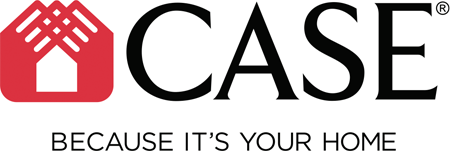Case Design Accelerates Sales Cycles and Improves Invoicing with GoCanvas

Overview
Apps used
- Home Repair Work Order (Contracted)
- Home Repair Work Order (Time & Materials)
- Plumbing Work Order
Highlights
- Project Managers receive Work Order forms immediately via email so invoicing or additional work can be scheduled.
- Calculations on costs and mark-up are performed automatically and therefore with greater accuracy.
- Craftspeople do not need to return to the office just to drop off paper work.
- The completed Work Orders are automatically attached to the customer’s record in Case’s CRM system, MS Dynamics.
- Their customer receives a PDF document customized by GoCanvas to reflect and match Case’s distinct branding.
The Background
Case Design is a family-owned, award-winning firm based in the Washington, DC metro area. Started in 1961, Case has always been a company of innovation. Whether that is the work it does or the company’s process for getting it done, Case has pushed the envelope in improving the results it delivers for its customers.
Case Design offers a range of services from full additions, to kitchens, baths, and handyman services. Case’s innovative twist around its handyman business was to launch a separate brand and business called “fred” (www.schedulefred.com). This slick, contemporary offer required some slick, contemporary technology.
The Problem
Multi-part carbonless paper forms don’t scream “innovation”. They take time to fill out when you’re calculating job costs and margins. They are hard to read and easily lost. And they need to be driven back to the office before anything can be done with them. A truck is definitely a slow way to transmit work instructions.
At Case, the craftspeople were supposed to fill out the top section of the paper form first and get a signature from the client agreeing to the work. Then they were supposed to start the job. After the work they would add in and calculate the materials, labor, travel fees, and mark-up. “Calculations for the mark-up on materials was left to the craftsperson. This led to calculation errors”, says Karen Eckert, Sr. Director of Technology for Case.
A credit card number was collected from the customer and written onto the paper form. Another signature was collected. And then it was driven back to the office. “In the past”, says Karen, “The paper forms required the craftsperson to return to the office before the invoice could be processed.”
The Solution
In March 2014, Case addressed this business challenge by turning to GoCanvas, the global leader in mobile apps for businesses. Thousands of organizations leverage GoCanvas’s mobile app platform to replace cumbersome paperwork order templates with highly customizable mobile forms (We call them apps!) that improve their data collection and productivity.
Businesses can search from over 21,000+ mobile app templates in the GoCanvas Application Store that can be completely customized with the online, drag-and-drop App Builder tool. Using that same tool, many businesses elect to build their own from scratch. Factor in features like Dispatch, Workflow, uploading your price and customer lists, and integration with other systems and Canvas changes the way work gets done.
Set-up
Karen built Case’s work order using GoCanvas’s powerful App Builder tool. GoCanvas’s professional services team then customized the PDF document that the GoCanvas platform generates to match Fred’s paperwork order.
Case also leveraged GoCanvas’s Professional Services team to connect GoCanvas to Microsoft Dynamics CRM in order to further automate the process.
According to Karen, “Building out the work orders and getting the integration with our CRM system went very smoothly. The team at GoCanvas was wonderful to work with. They created custom PDFs that look just like our paper form. GoCanvas was also very responsive to assisting me in building the work orders.”
The Outcomes
Case now has one cool team of craftspeople out in the field each with an iPad mini, and their fred business is more streamlined than ever. Now what does their process look like?
Craftspeople
- They quickly populate the customer’s information at the top of the form by choosing the appropriate job number from a drop-down. The rest of the customer’s information is populated automatically using GoCanvas’s Reference Data feature.
- The Reference Data (their customer list) is updated automatically thanks to the integration with MS Dynamics CRM.
- They then review the job with the customer and capture their signature prior to starting work. They have to because GoCanvas does not let them advance to the rest of the form until they do!
After the craftsperson completes their work, the process looks like this:
- They enter their costs into the form and mark-up is automatically calculated for them using GoCanvas’s Calculation functionality.
- They collect the customer’s signature agreeing that the work has been completed to their satisfaction.
- Or, if more time needs to be scheduled, the form is updated to indicate that and it is sent off to the Project Manager right away.
- They can collect payment via swiping the customer’s credit card with the iPad mini (Case does not use GoCanvas’s mobile payment solution because they had an existing relationship with their bank for this.).
- The form is transmitted immediately to the office so next steps can be taken right away.
Project Managers
- The Project Manager receives an email with the PDF form attached.
- If the job is complete, then the Project Manager can close it out right away in their system. Electronic forms are much easier to read and craftspeople can’t skip required fields.
- If the job requires more hours, the Project Manager can schedule that right away to keep things moving.
- The PDF is automatically attached to the customer’s record in Microsoft Dynamics CRM.
The Impact
A number of things have been dramatically improved for Case since moving this process over to GoCanvas.
- Customers are happier because jobs requiring an additional work request are scheduled right away.
- Case Design’s billing is more accurate because pricing and the associated markup is calculated automatically.
- Job close-out happens sooner and faster.
- Cash flow is accelerated. Especially if the customer pays via credit card on the spot.
Ready to Rethink How You Work?
GoCanvas has helped a variety of businesses across multiple industries transform their safety processes and rethink their efficiency, ultimately saving them money. Why not do the same? Reach out to one of our experts today to kickstart your process revolution.
Check out even more resources

How Digital Work Orders Impact Your Key Business Outcomes
Is your company still using paper sheets to manage work orders? The drawbacks of using paper forms are often hidden, making it difficult to understand the true impact of paper forms on a business…

See How Centurion Got Amazing ROI from GoCanvas
Centurion is the largest heavy haulage provider in Australia. They deliver national supply chain solutions to the resources, energy, construction & retail sectors throughout Western Australia, Queensland & the Northern Territory…

5 Tips to Improve How Your Business Collects Data
Companies rely on collecting data in order to operate. In a fast-changing world, companies that focus on streamlining and improving their data collection processes will be able to do more. The good news is that it’s become easier than ever for businesses of all…